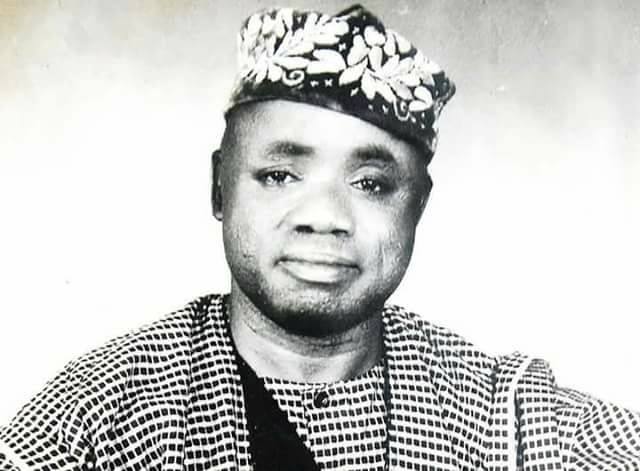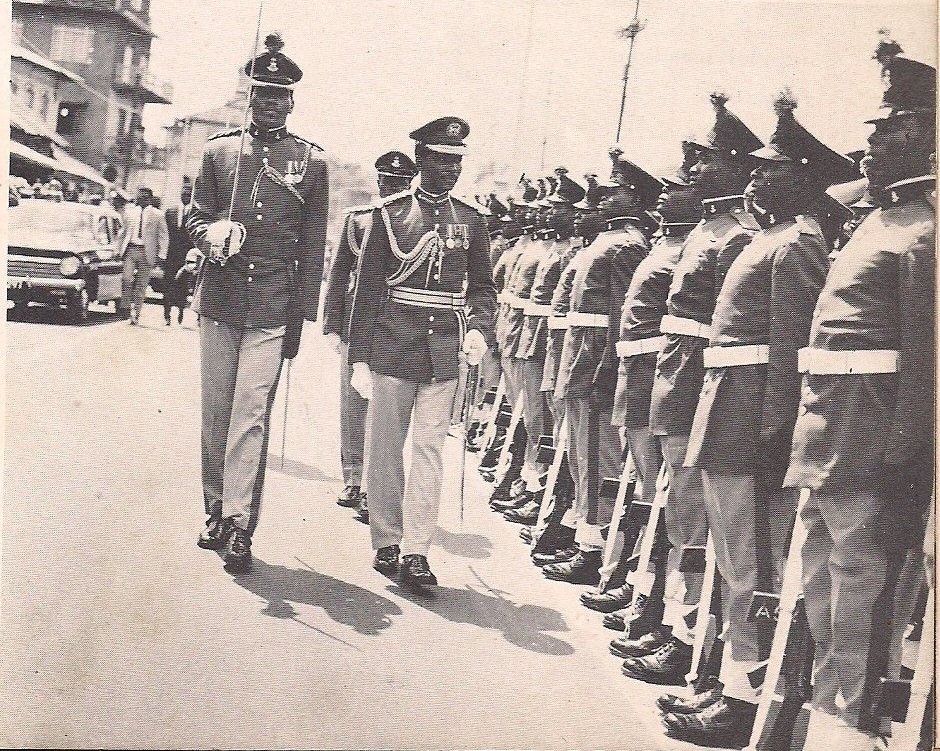D.O. FAGUNWA: THE MOST WIDELY READ AUTHOR OF THE YORUBA LANGUAGE
Daniel Olorunfẹmi Fagunwa, MBE (1903–1963), popularly known as D.O. Fagunwa, was a Nigerian author who pioneered the Yoruba language novel. He was born in Oke-Igbo, Ondo State in 1903.
#Thread
Daniel Olorunfẹmi Fagunwa, MBE (1903–1963), popularly known as D.O. Fagunwa, was a Nigerian author who pioneered the Yoruba language novel. He was born in Oke-Igbo, Ondo State in 1903.
#Thread

An Oloye (Chief) of the Yoruba people, Fagunwa studied at St. Luke's School, Oke-Igbo and St. Andrew's College, Oyo, before becoming a teacher himself.
In 1938, entering a literary contest of the Nigerian education ministry, Fagunwa wrote his Ògbójú Ọdẹ nínú Igbó Irúnmalẹ̀...
In 1938, entering a literary contest of the Nigerian education ministry, Fagunwa wrote his Ògbójú Ọdẹ nínú Igbó Irúnmalẹ̀...
...widely considered the first novel written in the Yoruba language and one of the first to be written in any African language.
Wole Soyinka translated the book into English in 1968 as “The Forest of a Thousand Daemons”.
Wole Soyinka translated the book into English in 1968 as “The Forest of a Thousand Daemons”.
Fagunwa later works include Igbo Olodumare (The Forest of God, 1949), Ireke Onibudo (1949), Irinkerindo ninu Igbo Elegbeje (Expedition to the Mount of Thought, 1954), and Adiitu Olodumare (1961).
Fagunwa's novels draw heavily on folktale traditions and idioms, including many supernatural elements. His heroes are usually Yoruba hunters, who interact with kings, sages, and even gods in their quests.
Thematically, his novels also explore the divide between the Christian beliefs of Africa's colonizers and the continent's traditional religions.
Fagunwa remains the most widely read Yorùbá-language author and a major influence on such contemporary writers as Amos Tutuola.
Fagunwa remains the most widely read Yorùbá-language author and a major influence on such contemporary writers as Amos Tutuola.
D. O. Fagunwa was the first Nigerian writer to employ folk philosophy in telling his stories. He was awarded the Margaret Wong Prize in 1955 and was made a Member of the Order of the British Empire in 1959.
Fagunwa drowned in the River Wuya in Bida, Niger State on December 9, 1963; the ground by the bank of the river apparently gave way under his feet and he fell into the river.
He tried to swim out of the water but sank because the canoe by the river also fell and collapsed on him. His body was recovered three days later with his clothes, shoes, eyeglasses and outer garments all intact. He was 60.
Fagunwa Memorial High School and Fagunwa Grammar School in Oke-Igbo, Ondo State, Nigeria, are named after him.
Fagunwa Day (formerly known as Fagunwa Night) is an annual event aimed at reading and promoting his five books.
Fagunwa Day (formerly known as Fagunwa Night) is an annual event aimed at reading and promoting his five books.
Fagunwa Day was initiated in his honour by the Society of Young Nigerian Writers in conjunction with Fagunwa Literary Society and Egbe Odo Onkowe Ede Yoruba. #HistoryVille
Credits: #Wikipedia
Credits: #Wikipedia
• • •
Missing some Tweet in this thread? You can try to
force a refresh










